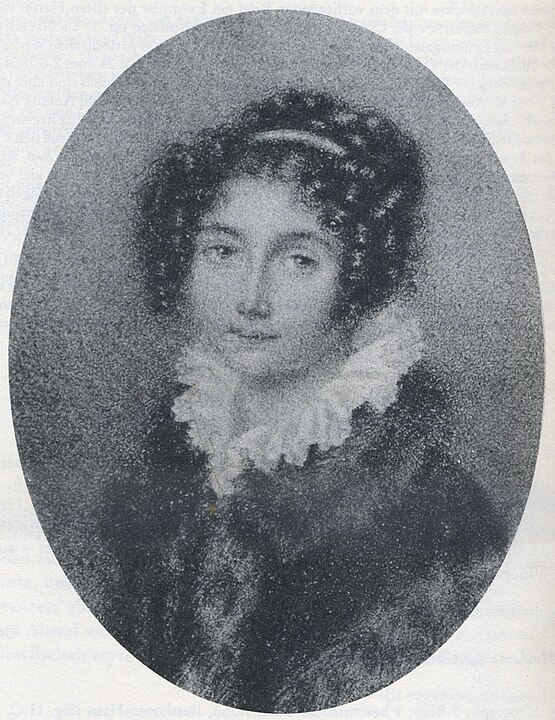Josephine’s tale is a tragic, yet familiar story of love and marriage in an era of strict social constraints, often with devastating consequences.
One cannot help but feel for the gentle Josephine, who was trapped by societal expectations, and the passionate, deeply sensitive man, who yearned for her loving comfort. In this article, we will introduce Josephine, one possible claimant of the Immortal Beloved title, looking at her life story and connection to the great composer.
The Hungarian Josephine Brunsvik was born in Pressburg, modern day Bratislava, Slovakia. She was present in Beethoven’s life for over two decades, and their connection was one of deep mutual sympathy, admiration and affection. Her sister even described him as her soulmate. In a draft letter to Beethoven in around 1806, Josephine wrote –
‘My soul was already enthusiastic for you even before I knew you personally. This was
increased through your affection. A feeling deep in my soul, incapable of expression, made
me love you. Even before I knew you, your Music made me enthusiastic for you. The
goodness of your character, your affection increased it.’
Josephine had two sisters and one brother, and they all enjoyed extensive private education. She was 20 years old when she and her sister, Therese, became students of Beethoven. Shortly after Josephine made his acquaintance, she was married to the much older Count Joseph von Deym. Her husband died five years later due to pneumonia. They had four children together. Although their marriage was fraught with financial difficulties (that were previously undisclosed by the Count), the few years they spent together were characterized by the aristocratic lifestyle of the time. Picture the elegance of fine clothes, musical performances and ballroom dancing!
Josephine became widowed in 1804, and in the following years her friendship with Beethoven deepened. Beethoven would visit often, giving Josephine piano lessons. Her sisters expressed concern, lest she follow her heart, and go against the societal norms, responding favourably to courtship from a commoner. The dreadful reality of nineteenth century law was that she would have lost guardianship of her children had she married Beethoven. This was unthinkable to Josephine, so she wanted to keep their relationship within the bounds of friendship. The composer wrote these words to her in 1805 –
‘There can be no words for you, my only beloved, only music. For you – you, my
everything, my happiness – notes are more faithful to me than words. No, not even in my
music can my heart express itself. Although nature has given me some talent for music, it
is still too little for you.’
In the same year, Beethoven composed An die Hoffnung (meaning To Hope) for Josephine. One of the composer’s supporters, Prince Lichnowsky, reportedly saw the music score in his home and that it was written for the countess. Josephine rejected this declaration of his love, and was very concerned that word might get out. She cared very much about his health and wellbeing, and had a deep appreciation for his artistry. But her situation would not allow their joining –
‘Do not tear my heart apart—do not try to
persuade me further. I love you inexpressibly, as one gentle
soul does another.’
Josephine lived in Vienna until 1808. She had taken over the running of her late husband’s wax museum and also lodgings for rent, whilst taking care of her young children. She married for a second time in 1810 to Christoph von Stackelberg; this marriage lasted just three years. Her misery was not over, however. Josephine had had three more children with the Estonian Baron. He took them away from her forcibly, following their separation, along with her inheritance. Her third child within this marriage was Mynona, who some claim was the daughter of Beethoven.
A few years later Josephine had her eighth and final child, who was also taken from her by the father. The child died of measles soon after. Her collective traumatic experiences, the pain inflicted upon her by Stackelberg and years of poor health led to her death at the young age of 42.
Beethoven composed his final two piano sonatas in the year of Josephine’s death, which have been described as tokens of remembrance, or requiems.
A.K.




